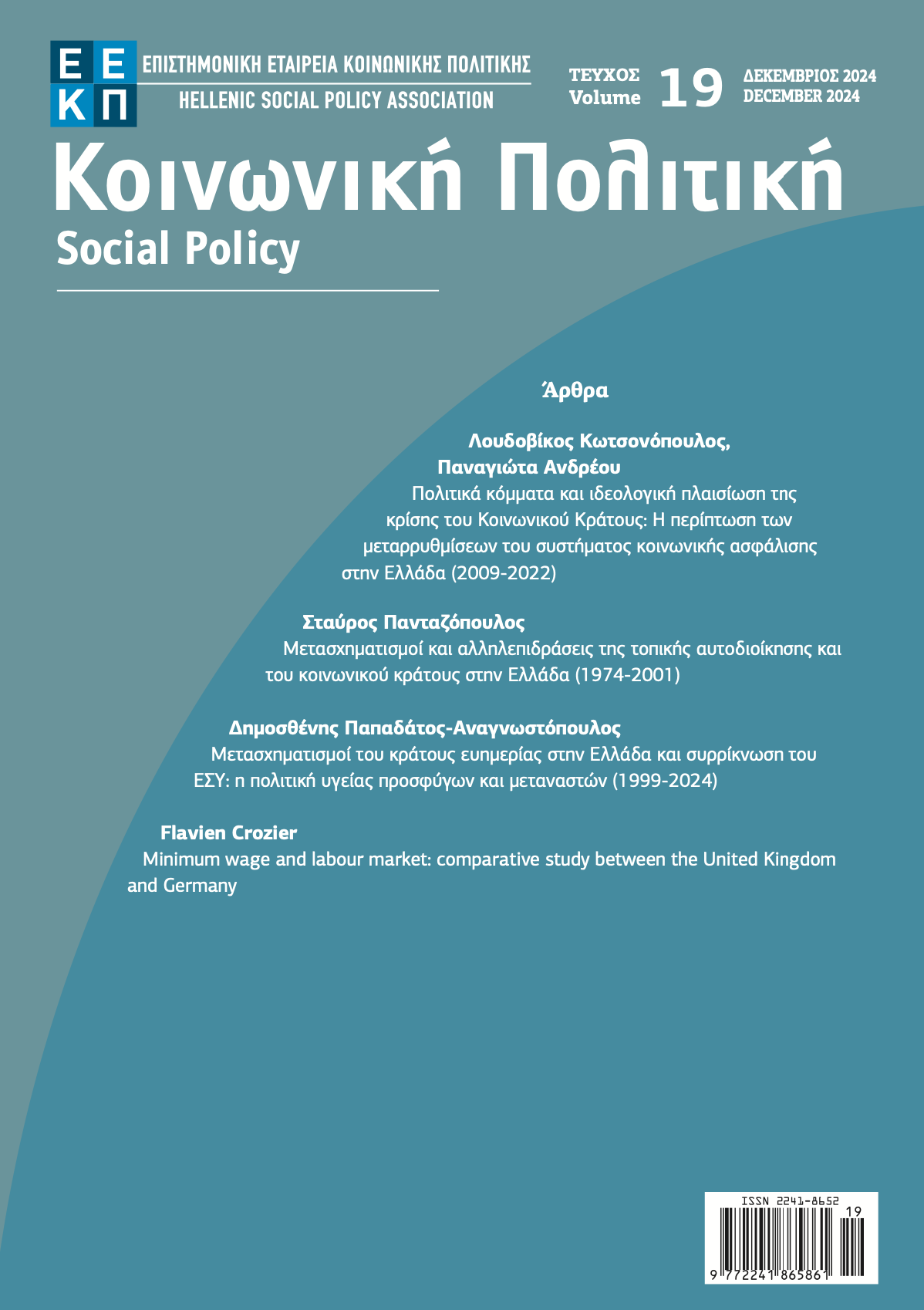Minimum wage and labour market: comparative study between the United Kingdom and Germany

Περίληψη
Αυτό το δοκίμιο διερευνά τις οικονομικές, πολιτικές και κοινωνικές επιπτώσεις των πολιτικών για τον κατώτατο μισθό στη Γερμανία και το Ηνωμένο Βασίλειο, εστιάζοντας στον αντίκτυπο στην αγορά εργασίας. Παρακολουθώντας την ιστορική εξέλιξη και τις βασικές εξελίξεις το 2015, η μελέτη αναλύει τις βραχυπρόθεσμες επιπτώσεις και τις προκλήσεις στην εκτίμηση του πραγματικού αντίκτυπου της πολιτικής. Τα ευρήματα υποδηλώνουν θετικά αποτελέσματα όσον αφορά την αύξηση των εισοδημάτων των χαμηλόμισθων εργαζομένων με ελάχιστες διαταραχές στην απασχόληση. Ωστόσο, εξακολουθούν να υπάρχουν ανησυχίες σχετικά με πιθανά μειονεκτήματα, όπως η μισθολογική ανισότητα και οι προκλήσεις για τις συλλογικές διαπραγματεύσεις, υπογραμμίζοντας την ανάγκη για μια ολοκληρωμένη προσέγγιση. Παρά την επίτευξη ορισμένων στόχων, οι μεταρρυθμίσεις συχνά υπολείπονται των προσδοκιών, με περιορισμένη επιτυχία στη βελτίωση του βιοτικού επιπέδου.
Λεπτομέρειες άρθρου
- Πώς να δημιουργήσετε Αναφορές
-
Crozier, F. (2025). Minimum wage and labour market: comparative study between the United Kingdom and Germany. Κοινωνική Πολιτική, 19, 81–98. https://doi.org/10.12681/sp.37379
- Τεύχος
- Τόμ. 19 (2024)
- Ενότητα
- Άρθρα

Αυτή η εργασία είναι αδειοδοτημένη υπό το CC Αναφορά Δημιουργού 4.0.
Οι συγγραφείς των άρθρων που δημοσιεύονται στο περιοδικό διατηρούν τα δικαιώματα πνευματικής ιδιοκτησίας επί των άρθρων τους, δίνοντας στο περιοδικό το δικαίωμα της πρώτης δημοσίευσης. Άρθρα που δημοσιεύονται στο περιοδικό διατίθενται με άδεια Creative Commons 4.0 και σύμφωνα με την άδεια μπορούν να χρησιμοποιούνται ελεύθερα, με αναφορά στο/στη συγγραφέα και στην πρώτη δημοσίευση για μη κερδοσκοπικούς σκοπούς και με δικαίωμα τροποποίησης μόνον με παρόμοια διανομή (αν αναμείξετε, τροποποιήσετε, ή δημιουργήσετε πάνω στο υλικό, πρέπει να διανείμετε τις δικές σας συνεισφορές υπό την ίδια άδεια όπως και το πρωτότυπο).


